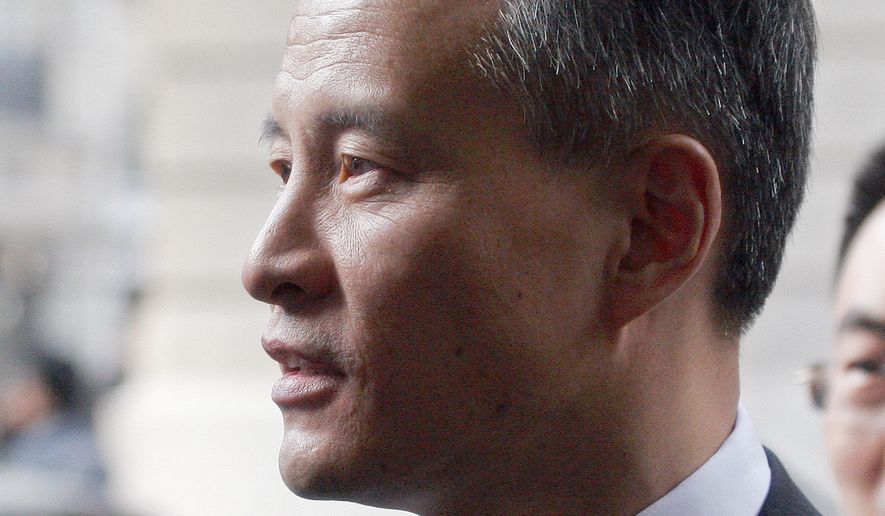China’s ambassador to the U.S. said Sunday his country is working hard to understand the new virus that’s sparked a global panic but that rumors about its origins will “stir up suspicion” and fuel xenophobia.
Ambassador Cui Tiankai was responding to suggestions by Sen. Tom Cotton of Arkansas and others that the coronavirus may have come from a Chinese “super laboratory” instead of popping up in a live-animal market in Wuhan, China.
“It’s very dangerous to stir up suspicion, rumors and spread them among the people. For one thing, this will create panic,” Mr. Cui told the CBS talk show “Face the Nation.”
He said it would spark “racial discrimination, xenophobia, all these things that will really harm our joint efforts to combat the virus.”
There are “all kinds of speculations and rumors” swirling about the virus, he added, including that it could also have been created in a military lab in the U.S.
“How can we believe all these crazy things?” Mr. Cui said. “It’s probably, according to some initial outcome of the research, probably coming from some animals. We have to discover more about it.”
Mr. Cui also paid homage to Dr. Li Wenliang, who died of the virus after blowing the whistle on its dangers — only to be silenced by local authorities.
“He was a devoted doctor and he did his best to protect people’s health. We are so grateful to him,” Mr. Cui said.
Mr. Cui allowed that Dr. Li might have picked up on dangers earlier than others, but he also seemed to defend officials’ approach, saying governments face a different standard in assessing the situation and raising public alarm than an individual doctor does.
“You have to base your decisions, your announcement on more solid evidence and signs,” Mr. Cui said.
“I don’t know who tried to silence him,” he said. “There was certainly a disagreement or people were not able to reach agreement on what exactly the virus is, how it is affecting people.”
The ambassador also said he’s never heard of Chen Qiushi, a citizen journalist who documented local struggles with the virus but has since disappeared.
As it stands, the coronavirus has sickened over 37,000 people and killed more than 800 people in mainland China, surpassing the global death toll of SARS — another acute respiratory disease — in 2002-2003. Also, a U.S. citizen died from the disease in Wuhan, officials said Saturday.
There have also been hundreds of cases reported in more than 20 countries outside China.
Mr. Cui said there is ongoing contact between U.S. and Chinese experts and that American scientists will be included in the group of experts the World Health Organization is dispatching to China.
U.S. officials said they offered experts from the Centers for Disease Control and Prevention directly, but did not get a response.
“I don’t think it’s been ignored,” Mr. Cui said. “We welcome the American experts to participate in our efforts. And we are coordinating with the World Health Organization because a lot of things are done under the auspices of the World Health Organization.”
• Tom Howell Jr. can be reached at thowell@washingtontimes.com.




Please read our comment policy before commenting.